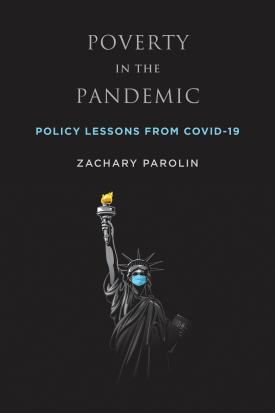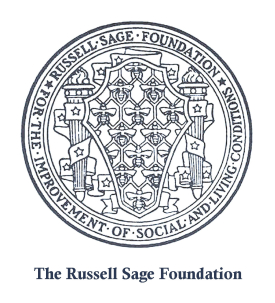More than 83-percent of online job advertisements posted between 2010 and 2022 exclude information on wages, yet most research focuses on the minority of ads with posted wages. At the same time, most firms operate in highly concentrated labor markets. Economists Matthew Knepper, Ian Schmutte, and Leonard Goff will examine the relationship between labor market concentration and the percentage of job postings that omit information on wages. They will analyze data from 107 million job advertisements and will conduct a series of natural experiments for their study.
Few studies have analyzed the causes of the dramatic decline in labor union organizing since the 1970s. Economist Matthew Johnson will examine the extent to which the decline in the quantity and scope of local newspapers account for the decline in the success of union organizing. He will analyze historical newspaper data, data on union elections and reports of unlawful interference by employers on union elections, and data on newspaper closures for his study.

Poverty in the Pandemic
About This Book
"An important and engaging book that is a ‘must read’ for anyone interested in U.S. poverty, whether they be general readers or people working in the poverty field. Perhaps the best new book on U.S. poverty this year."
—ROBERT GREENSTEIN, founder and president emeritus, Center on Budget and Policy Priorities, and visiting fellow, Economic Studies, the Brookings Institution
"Zachary Parolin has given us the most comprehensive and thoughtful summary of how the pandemic affected the poorest amongst us and the policy lessons that emerged from this experience. The sudden onset of COVID underlined how those who were most at risk of poverty were affected, by how much monthly poverty changed and how policy responded, and the lasting consequence of the pandemic for the poorest Americans. Whether the outcome was disparities in job loss, material hardship, income, assets, mental health consequences, or the effects of childcare and school closures on children and their families, it is all masterfully brought together in this compact and highly readable volume."
—TIMOTHY M. SMEEDING, Lee Rainwater Distinguished Professor of Public Affairs and Economics, La Follette School of Public Affairs, University of Wisconsin
"Despite our nation’s enormous wealth, the United States entered the pandemic with high rates of poverty and systematic inequities by race and ethnicity. The public health crisis led to enormous loss of life and economic vitality. The federal government, straddling two administrations, responded in kind with a massive policy response. Zachary Parolin’s comprehensive and readable book studies poverty and inequity in the United States during the COVID-19 pandemic. He assembles a wide range of evidence documenting how poverty acts as a preexisting risk factor for health and economic hardship experienced during this period. He also shows how a robust policy response mitigated the worst of the economic shock and how this can help point the way forward in the next generation of antipoverty policy. A must read for anyone wanting to understand the consequences of poverty and structural inequalities in America."
—HILARY HOYNES, professor of public policy and economics and Haas Distinguished Chair of Economic Disparities, University of California, Berkeley
At the close of 2019, the United States saw a record-low poverty rate. At the start of 2020, the COVID-19 pandemic threatened to upend that trend and plunge millions of Americans into poverty. Contrary to such fears, and despite the highest unemployment rate since the Great Depression, the poverty rate declined to the lowest in modern U.S. history. In Poverty in the Pandemic social policy scholar Zachary Parolin provides a data-rich account of how poverty influenced the economic, social, and health consequences of the COVID-19 pandemic in the U.S., as well as how the country’s policy response led to historically low poverty rates.
Drawing on dozens of data sources—ranging from debit and credit card spending, the first national databases of school and childcare center closures in the U.S., and bi-weekly Census-run surveys on well-being—Parolin finds that those already living in poverty at the start of the pandemic experienced a greater likelihood of contracting and dying from COVID, as well as losing their job. Additionally, he found that students from poor families suffered the greatest learning losses as a result of school closures and the shift to distance learning during the pandemic.
However, unprecedented legislative action by the U.S. government, including the passage of the Families First Coronavirus Response Act (FFCRA), the Coronavirus Aid, Relief, and Economic Security (CARES) Act, and the American Rescue Plan (ARP) helped mitigate the economic consequences of the pandemic and lifted around 18 million Americans out of poverty. Based on the success of these policies, Parolin concludes with policy suggestions that the U.S. can implement in more ‘normal’ times to improve the living conditions of low-income households after the pandemic subsides, including expanding access to Unemployment Insurance, permanently expanding the Child Tax Credit, promoting greater access to affordable, high-quality healthcare coverage, and investing more resources into the Census Bureau’s data-collection capabilities. He also details a method of producing a monthly measurement of poverty, to be used in conjunction with the traditional annual measurement, in order to better understand the intra-year volatility of poverty that many Americans experience.
Poverty in the Pandemic provides the most complete account to date of the unique challenges that low-income households in the U.S. faced during the COVID-19 pandemic and policies that have been proven to help them as we move forward.
ZACHARY PAROLIN is an assistant professor of social policy at Bocconi University and a senior research fellow at Columbia University.
RSF Journal
View Book Series
Sign Up For Our Mailing List
Apply For Funding
About This Book
This bibliography comprises two main sections: first, writings on relief problems and issues immediately preceding or arising from World War II, and second, publications dealing with relief programs instituted to deal with problems that arose during, or as a result of, World War I.
SIGRID HOLT was the librarian in the Charity Organization Department at the Russell Sage Foundation.
RSF Journal
View Book Series
Sign Up For Our Mailing List
Apply For Funding
About This Book
This booklet presents a picture of the aims of those responsible for work-relief programs in Germany. Topics include types of service, wages and hours, the Bureau for Work Relief, personnel practices, planning and selection of projects, special projects, and possibilities and limitations of work relief.
HERTHA KRAUS was director of the Department of Welfare of Cologne, Germany.
Download
RSF Journal
View Book Series
Sign Up For Our Mailing List
Apply For Funding

Recent Relief Programs of the American Friends in Spain and France
About This Book
This booklet offers a digest of pertinent material for those interested in planning or administering relief abroad. Topics include launching the program, political difficulties, personnel and fiscal policies, and ending the enterprise.
JOHN VAN GELDER FORBES received his PhD from the University of Pennsylvania in 1951 and taught at Blackburn College in Carlinville, Illinois.
DONALD S. HOWARD was assistant director of the Charity Organization Department of the Russell Sage Foundation.
RSF Journal
View Book Series
Sign Up For Our Mailing List
Apply For Funding
About This Book
This booklet brings together recommendations for community action to meet emergent unemployment. It includes a list of the books and pamphlets quoted.
JOANNA C. COLCORD was the director of the Charity Organization Department at the Russell Sage Foundation.
Download
RSF Journal
View Book Series
Sign Up For Our Mailing List
Apply For Funding
Rapid Re-Housing (RRH) programs are designed to help people transition from homelessness to stable housing. Despite the many temporary benefits of RRH programs, such as rental subsidies, and case management, estimates suggest that 28-percent of individuals return to homelessness within a year after exiting RRH. Economists James Sullivan, Mary Kate Batistich, and Adrienne Sabety will examine the impact of cash transfers to individuals for the year after they exit a Rapid Re-Housing program and the effects on homelessness, housing stability, and well-being.
The Civil Rights Act of 1991 formally established the right to a jury trial in employment discrimination cases in which the plaintiff seeks compensatory or punitive damages. It also introduced the possibility of emotional distress damages in these cases. Economist Jose Lopez will examine the effects of the Civil Rights Act of 1991 on the incidence of jury trials in cases of employment discrimination and the probability of the plaintiff winning in such trials.
Exposure to toxic chemicals threatens the well-being of those exposed early in life. Per-and poly-fluoroalkyl substances (PFAS), manufactured chemicals that accumulate in the environment and the human body, are likely very toxic. Economists Irene Jacqz and John Voorheis will investigate the long-run impacts of early childhood exposure to PFAS on educational attainment and earnings.
Pagination
- Previous page
- Page 22
- Next page
